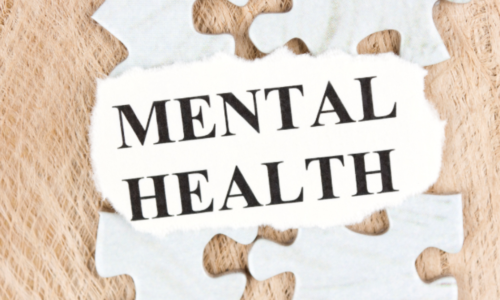
NAVIGATING RELATIONSHIPS WITH EMPATHY: BUILDING AND MAINTAINING HEALTHY SOCIAL CONNECTIONS
- November 6, 2023
- Community and Support
- 0 Comments
INTRODUCTION: THE IMPORTANCE OF EMPATHY IN RELATIONSHIPS
Table of Contents
In the tapestry of human interaction, empathy stands out as a vibrant thread, weaving deep and genuine connections. It’s the magical ingredient that turns acquaintances into lifelong friends and transforms ordinary interactions into meaningful exchanges. Building and maintaining healthy social connections is not just a luxury but a necessity in this life journey.
Defining Empathy and Its Role in Relationships
Empathy, in its purest form, is the ability to understand and share the feelings of another. It’s about stepping into someone else’s shoes, feeling their joy or pain, and responding with kindness and understanding. Empathy acts as a bridge in relationships, fostering a sense of belonging and mutual respect.
Why Building Healthy Social Connections is Essential
Humans are inherently social beings, and our connections with others are crucial to our overall well-being. Healthy social relationships provide a support network, enrich our lives with shared experiences, and contribute to our emotional resilience.
THE BUILDING BLOCKS OF EMPATHETIC RELATIONSHIPS
Building empathetic relationships requires intentionality and practice. It’s about nurturing specific skills and attitudes that foster understanding and compassion.
Active Listening: The Heart of Empathy
At the heart of empathy lies active listening. This means entirely focusing on the other person, absorbing their words, and responding thoughtfully. It’s about creating a safe space where the other person feels heard and valued.
Understanding and Sharing Feelings
Empathy goes beyond just listening; it involves connecting with the other person’s emotions. This connection is fostered through openness, vulnerability, and a willingness to share your feelings.
Setting Boundaries: A Key to Healthy Interactions
While empathy encourages deep connection, it also necessitates setting healthy boundaries. Knowing where you end and the other person begins prevents empathy burnout and ensures your interactions remain balanced and healthy.
STRATEGIES TO ENHANCE EMPATHY IN RELATIONSHIPS
Enhancing empathy in relationships is a continual process, requiring consistent effort and reflection. Here are some strategies to guide you along the way.
The Power of Open-Ended Questions
Open-ended questions invite deeper conversation and show interest in understanding the other person’s perspective. They create room for exploration and express a genuine curiosity about the other person’s experience.
Cultivating a Non-Judgmental Attitude
A non-judgmental attitude is crucial for empathetic interactions. It involves accepting the other person as they are, without imposing your own values or judgments. This creates a safe space for authenticity and deep connection.
Practicing Patience and Tolerance
Empathy requires patience. It’s about giving the other person the time and space to express themselves and tolerate differing viewpoints and experiences.

OVERCOMING CHALLENGES IN EMPATHETIC COMMUNICATION
Empathetic communication is not without its challenges. Recognizing and addressing these challenges ensures that your empathetic interactions remain healthy and fulfilling.
Identifying and Addressing Empathy Burnout
Empathy burnout occurs when we become overwhelmed by the emotional demands of our relationships. Recognizing the signs and taking steps to recharge ensures we can continue to engage empathetically with others.
Navigating Conflicts with Empathy
Conflicts are an inevitable part of any relationship. Approaching conflicts with empathy involves understanding the other person’s perspective and working together to find a resolution.
Building Resilience in Relationships
Empathy contributes to relationships’ resilience, helping them withstand life’s inevitable ups and downs. This resilience is built through consistent empathetic interaction, mutual support, and a shared commitment to the relationship.
EMPATHY IN DIFFERENT TYPES OF RELATIONSHIPS
Empathy plays a unique role in different types of relationships, from family and friendships to romantic partnerships.
Family
In family relationships, empathy fosters a sense of belonging and mutual support. It’s about understanding each other’s experiences and providing a stable foundation of love and support.
Friendships
Empathy in friendships contributes to a sense of companionship and shared joy. It transforms casual acquaintances into true friends, creating bonds that can last a lifetime.
Romantic Partners
In romantic partnerships, empathy deepens the connection between partners, fostering intimacy and mutual understanding. The glue holds the relationship together, even in challenging times.
CONCLUSION: THE LIFELONG JOURNEY OF EMPATHETIC COMMUNICATION
Embarking on the journey of empathetic communication is a lifelong endeavor. It requires continual practice, reflection, and a genuine commitment to understanding and connecting with others. By building and maintaining healthy social connections through empathy, we enrich our lives, foster resilience, and create a kinder and more compassionate world.
FAQS
What are the main components of an empathetic relationship?
Empathetic relationships are built on active listening, understanding and sharing feelings and setting healthy boundaries.
How does empathy contribute to the resilience of a relationship?
Empathy fosters resilience by creating a solid foundation of mutual support, understanding, and shared commitment, helping the relationship withstand challenges.
Can empathy lead to burnout, and how can it be prevented?
Yes, empathy can lead to burnout if boundaries are not set. Preventing burnout requires recognizing the signs of emotional exhaustion and taking steps to recharge.
How does empathy differ in family, friendships, and romantic relationships?
Empathy plays a unique role in different types of relationships, fostering belonging and support in family, companionship in friendships, and intimacy in romantic partnerships.
What are some strategies to enhance empathy in relationships?
Enhancing empathy requires practicing active listening, asking open-ended questions, cultivating a non-judgmental attitude, and practicing patience and tolerance.






